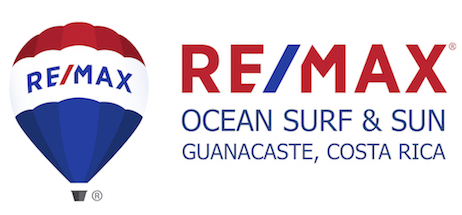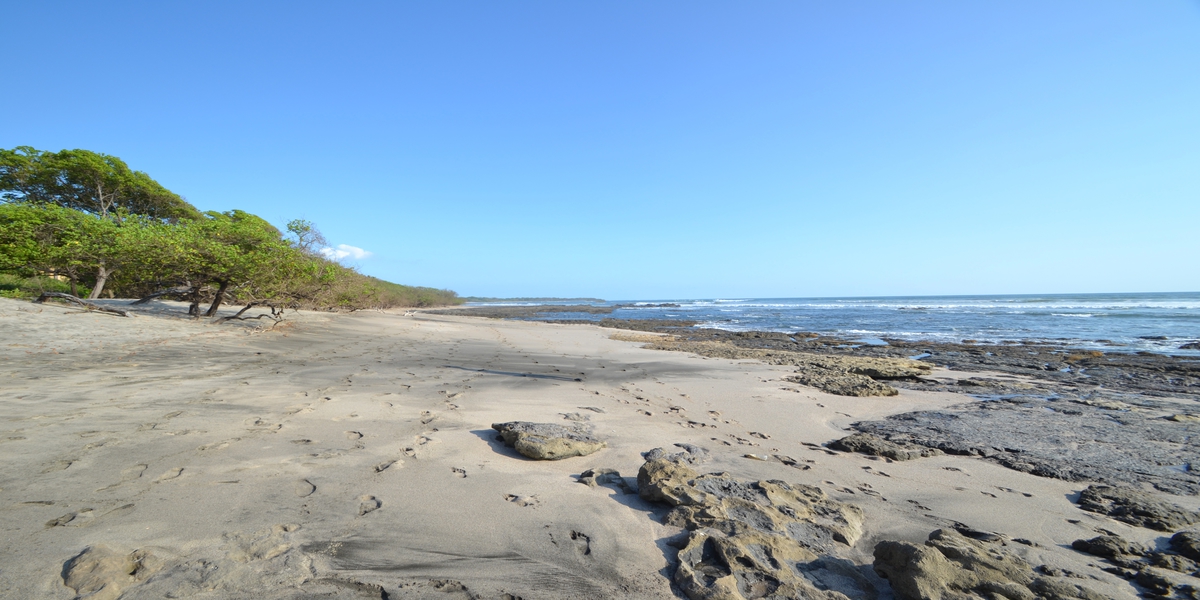
As retirement nears, most workers look forward to long leisurely days, fun-filled evenings, and the freedom to sleep as late as they want the next morning. With no time clock to punch, no meetings to attend, really no schedule at all, they can pursue whatever interest suits them. Many envision spending their relaxing retirement years in Costa Rica, the jewel of Central America, but they may wonder how far their pension and retirement savings will go there. So, how much does retirement in Costa Rica cost?
An internet search reveals a wide range of answers to that question and it can be difficult for retirees to find accurate information. One website claims that you can get by for $600 per month per person plus rent. Another says a retired couple can live well on $2,000 per month or even better on $2,500 to $3,000. So, what’s the truth? How much does it really cost to live here? It all depends on where and how you live in Costa Rica. Either of the above estimates could be correct, or your cost of living could be in between. Almost everyone says that Costa Rica is less expensive than the USA and Canada. That may be true, too, depending on where you lived in North America before moving to Costa Rica.
Average Costs
According to data on the website numbeo.com, as of April 2023, the average monthly cost of living in Costa Rica is $781 for one person and $2832 for a family of four. That’s 27% lower than the average in the United States and 24% less than in Canada. The savings are even greater compared to large metropolitan areas in North America. The average is based on the cost of food, transportation, health care, and utilities. Rent is calculated separately, and it’s a remarkable 65% less in Costa Rica than in the U.S.
However, there is more to the story than averages. If the average North American or European retiree lived in Costa Rica, could they really make ends meet for $800 per month plus rent? It’s possible if they take advantage of Costa Rica’s bargains—products and services that cost substantially less in Costa Rica than elsewhere. Maximizing those bargains is the key to making Costa Rica affordable for retirees on a budget. Consider some examples.
How much will a Retiree spend on Food in Costa Rica?

Food can be less expensive in Costa Rica if you buy things that are produced locally, not imported. Fortunately for health-conscious retirees, fresh fruits and vegetables are bargains. Many communities hold a weekly local farmers' market called la feria in Spanish. Local farmers display a wide variety of recently harvested produce and even hand out free samples. The prices are so low that you typically can afford every fruit and vegetable offered. You can buy as much as you can carry for about $20-30.
If you have a craving for your favorite beverage, snack, or other processed food from your home country, it will undoubtedly cost more in Costa Rica because of the additional importation costs. How can you stay within your retirement budget? Many expats living in Costa Rica buy such foods only occasionally as a splurge. Also, they quickly learn which locally produced items and brands make good substitutes for their favorite flavors from back home.
What if I like eating out?
Retirees often enjoy dining out and have the leisure time to do so. But can they afford it in Costa Rica? Fortunately, meals in Costa Rican restaurants are typically priced at about half the cost of those in a North American city. Additionally, the standard 10% tip is usually included in the menu price. This means you can find a wide variety of food options at prices that are friendly to retirees. There are Asian, Indian, Italian, Mexican, seafood, and steak restaurants, as well as those serving traditional Costa Rican dishes. However, restaurants catering specifically to tourists may be slightly more expensive. So, to save on your monthly income, try eating where the locals do.
Transportation Expenses
Buses, taxis, and rideshare services like Uber are inexpensive transportation options in Costa Rica. However, most retirees prefer the freedom and convenience of owning a vehicle for shopping, running errands, and sightseeing. But owning a car in Costa Rica is more expensive than in most other countries. Every vehicle registered in Costa Rica must pay an import duty of 60-80% of its value. As a result, the purchase price can be almost double what you would pay for the same model in your home country, and there is no way to avoid this tax.
So how can retirees reduce the cost of owning a vehicle? One way is to drive a car that is a few years older than they are used to. This makes financial sense since Costa Rican mechanics charge much less than their international counterparts. While gasoline is usually around $2 per gallon more expensive than in the U.S., it's similar to prices found in European countries. Fuel costs aren't typically excessive for retirees since they no longer have to commute to work.
How much is Rent in Costa Rica?
Housing is a significant expense for most families, usually accounting for at least 25% of their income. But is that enough in Costa Rica, especially for those on a fixed retirement income? Fortunately, the average rent in Costa Rica is 65% less than in the U.S. Your savings will depend on where you choose to live and the lifestyle you prefer. If you want to be near the beach or amenities, expect to pay more. However, simpler homes that are a short drive from the beach can be quite affordable.
If you decide to buy a home in Costa Rica, you'll save money on property taxes and insurance. They are much more affordable than in North America. A real estate agent can show you the options available and help you find a home that fits your budget and lifestyle.
How much are Utilities?
In Costa Rica, electricity can be a bit more expensive per kilowatt hour than in the U.S. However, because the climate is tropical, you'll likely only need to cool your home, and not heat it. This means you can save on energy costs compared to those in colder climates.
Water in Costa Rica is safe to drink and relatively inexpensive throughout the country. This is a significant advantage for retirees who are on a budget, as they can avoid the additional expense of purchasing bottled water.
Internet and cable television services are widely available in Costa Rica and cost less than equivalent services in North America. As a result, you can save money on your entertainment expenses. This is especially beneficial for retirees who may be spending more time at home and rely on these services for their entertainment needs.
In summary, while electricity may be a bit more expensive, the overall cost of utilities in Costa Rica is relatively affordable. With safe drinking water, and lower costs for internet and cable television services, retirees can potentially save money on their monthly expenses compared to North America.
Healthcare Costs for Retirees

As retirees age, access to quality health care becomes increasingly important. Luckily, Costa Rica's health care system offers great benefits at a relatively low cost. In fact, Costa Rica has become a popular destination for medical tourism due to its excellent quality and affordability of medical procedures. This same advantage applies to dental care as well.
If you choose to live in Costa Rica, you can enjoy these same retirement benefits. Residents of Costa Rica can enroll in the national health care system called the “caja.” This program is available for a monthly fee based on your income. Once enrolled, your visits to the local clinic or hospital, and some prescriptions, will be free of charge. This is a significant advantage for retirees who are on a fixed income and need access to affordable health care.
Overall, Costa Rica's health care system offers quality medical and dental care at a relatively low cost. The national health care system, "caja," is available to residents and provides free medical services for a monthly fee based on income. This is a significant benefit for retirees who need access to affordable health care.
While Costa Rica's national health care system is affordable and of good quality, some retirees in the expat community who have a higher fixed monthly income may prefer to take out a private insurance plan. Private insurance provides access to a broader range of private clinics, doctors, and hospitals. However, as with private insurance in many countries, a portion of medical expenses are paid by the insured, and rates can vary widely. Therefore, it's important to contact the insurance companies directly to get accurate information on rates and coverage options.
As of this writing, some providers of private insurance in Costa Rica include INS Seguros, Mapfre Seguros, BlueCross BlueShield, Alico Seguros (part of Metlife), Pan American Life Insurance Group, and Sagicor Seguros. These companies offer a range of insurance plans, so it's important to carefully review the coverage and costs associated with each plan before making a decision.
In summary, while Costa Rica's national health care system is a cost-effective option, some retirees with higher fixed monthly incomes may choose to take out private health insurance for broader access to health care services. Private insurance rates vary widely and are dependent on the insurance company and the specific plan selected, so it's essential to do thorough research and compare options before making a decision.
Bottom Line
Many retirees wonder what it costs to live comfortably in Costa Rica. As a general guideline, we recommend that people moving here from the States, Canada, and Europe budget a minimum of $15,000 per year per person. This is because many of us are used to a certain lifestyle that includes more luxuries than the locals are accustomed to. However, as you can see from the above categories, there are cost-saving bargains available in Costa Rica. By taking advantage of them, you can stay within your monthly budget and maintain the lifestyle you're used to.
While there are countries with a lower cost of living than Costa Rica, it's important to remember that Costa Rica offers a quality of life that you won't find anywhere else, and a cost of living that's within reach of most retirees. With affordable healthcare, housing, transportation, utilities, and entertainment, Costa Rica can be a very attractive option for retirees.
We invite retirees and those nearing retirement to experience for themselves what a great and affordable place Costa Rica is to enjoy your retirement. With its beautiful natural scenery, friendly people, and comfortable lifestyle, Costa Rica has become a top destination for retirees from around the world.
...
Other articles you may enjoy reading:
Costa Rica Immigration and Residency Information
General Cost of Living in Costa Rica
How to Buy Property in Costa Rica
How to Buy a Car in Costa Rica
...






